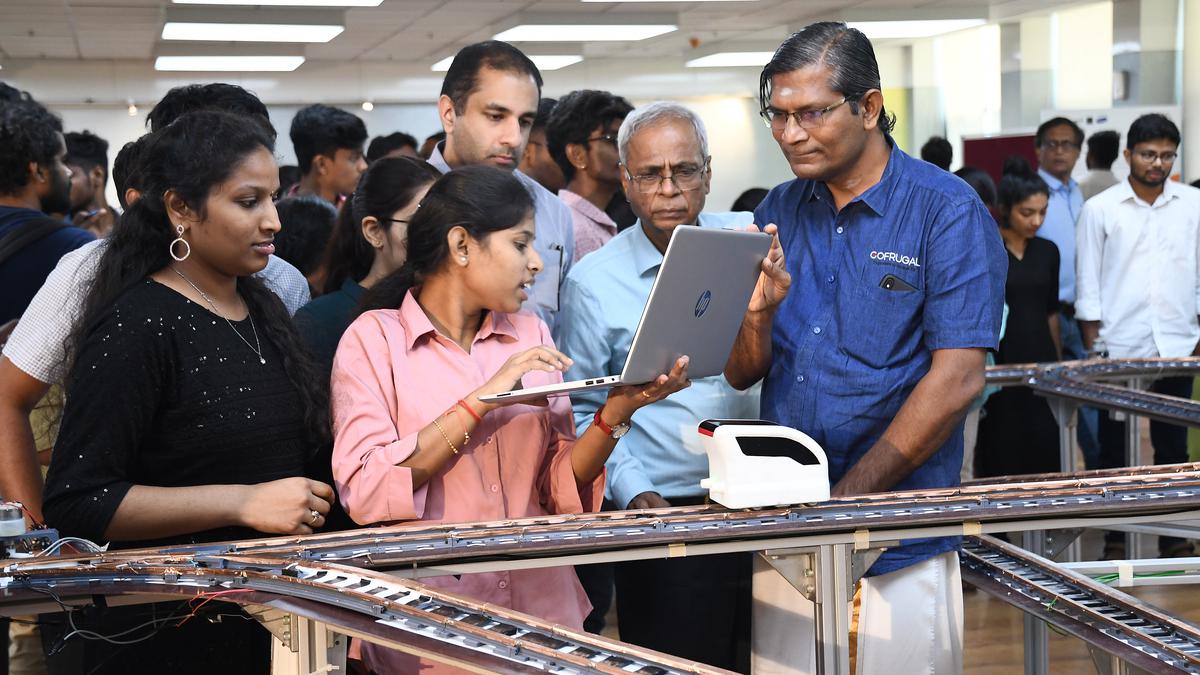
Non-IIT students, budding engineers build future technologies at research park
The Hindu
A 75-day internship at IIT Madras Research Park teaches young engineering students and gradautes to develop skills. At the 11-week summer project with Maxelerator Foundation, a deep tech startup technology ideation incubator, and the Centre for Innovation in IIT Madras they work on autonomous wheelchair vehicle and high-throughput autonomous, sustainable human/goods transportation system. Studenow confident to pursue projects iand interact with tech entrepreneurs.
When Tharani M., who graduated in Computer Science and Engineering from KLN College of Information Technology in Madurai, did not get placement for over a year despite receiving an offer letter from a company, she was aghast. She needed a job to supplement her family income. Her father is a temporary employee in the Madurai City Corporation.
She had been working on various projects at Maxelerator Foundation for several months and a test project by the foundation led to a placement with them.
Dharani Vengadesh, also from Madurai and daughter of a loadman, graduated from Mangaiyarkarasi College in Paravai and was selected by a few companies. She rejected offers from multinational companies to join a start-up though the salary was low. “An MNC will offer higher salary, but I would have to find accommodation and that would be expensive. This way I get to stay at home as well,” she said.
The young women participated in a 75-day internship at the Indian Institute of Technology Madras Research Park, learning and helping engineering students develop their skills and knowledge.
Maxelerator, a deep tech start-up, the Centre for Innovation in IIT Madras and the IIT-M Research Park partnered to bring together tech talent to develop new technologies in an 11-week summer project. As many as 50 students, half of them women, and 40 engineering graduates came together to develop an autonomous wheelchair that can understand at least six Indian languages besides English and assist the user. Another group of students and engineers worked on high-throughput autonomous sustainable human/goods transportation for India’s next century (Hashtic).
The aim was to engage the youth, enable them to come up with solutions for the impossibly ambitious project, said Ashok Jhunjhunwala, president of the Research Park. The theme of the summer programme was “Impossible is Possible”.





















 Run 3 Space | Play Space Running Game
Run 3 Space | Play Space Running Game Traffic Jam 3D | Online Racing Game
Traffic Jam 3D | Online Racing Game Duck Hunt | Play Old Classic Game
Duck Hunt | Play Old Classic Game











